

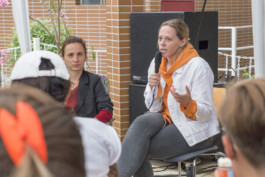
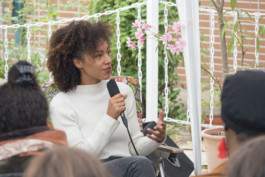
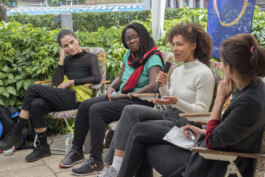
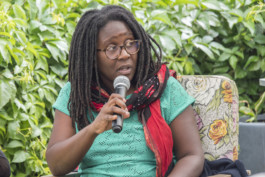
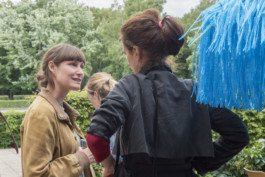
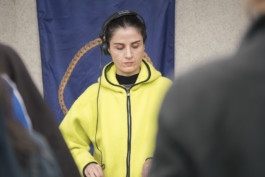
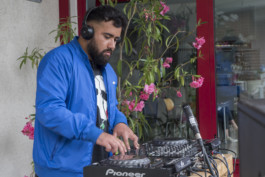
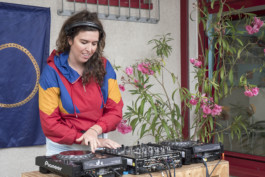
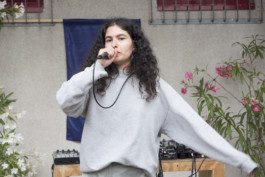
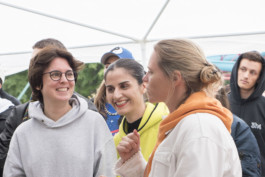
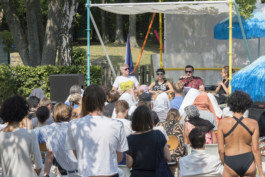

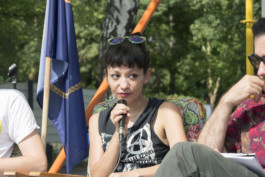
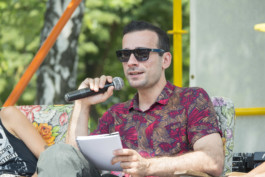
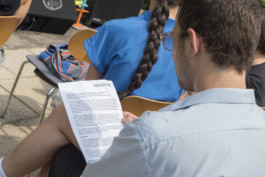
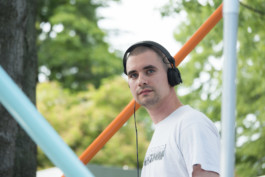
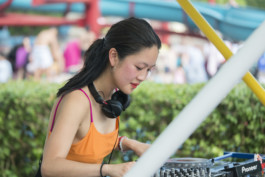
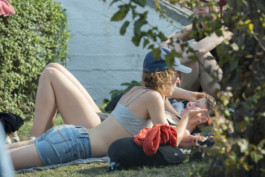
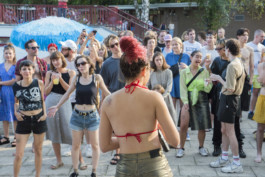
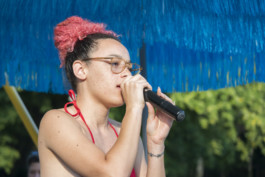
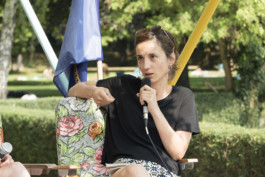

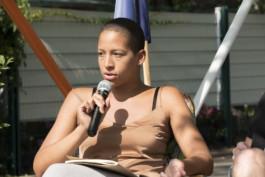
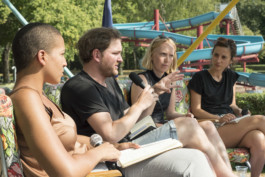
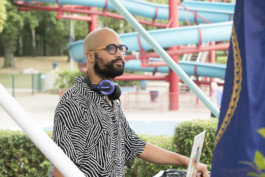
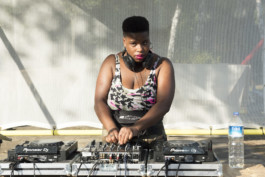
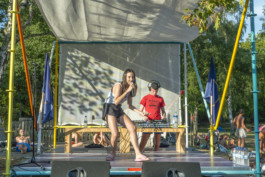
Die Forschung von Hankings-Evans konzentriert sich auf internationales Wirtschaftsrecht und Machtstrukturen, Geopolitik sowie postkoloniale Rechtstheorie. Die Musikerin Farahani untersucht Populismus und wie sich die rechte Szene online organisiert. Ewokolo Burnley wendet ihren dekolonialen, intersektionalen, feministischen Ansatz, auf Konzepte rund um Zugehörigkeit, Brexit und Literatur an.
Samstag
21.7.2018
Hope and Activism in a Digital Age
Diskussion mit Nine Yamamoto-Masson, Lukas Stolz, Birkan Taş, Aleksandra Lakic und Musik von Killavesi (live), Detente, Liyo Gong, Larry
Das Festhalten an einer neoliberalen Agenda hat die Repräsentativdemokratie in der Europäischen Union an den Rande der Legitimität gebracht hat. Im letzten Jahrzehnt haben Nationalismus und reaktionäre Gewalt gegen Migranten und Geflüchtete wie auch Austerität und Massenprivatisierung zugenommen. Zugleich sind die Menschen auf die Straße gegangen, um Regierungen und Unternehmen zur Verantwortung zu rufen. Die Podiumsdikussion Hope and Activism in a Digital Age betrachtet verschiedene Formen von Protest, Basisinitiativen und alternative Möglichkeiten, um die Hoffnung auf politisches Handeln wiederherzustellen. Die Teilnehmer:innen überlegen welche Mittel starke und dauerhafte Netzwerke der Solidarität und des gegenseitigen Austausches ermöglichen.
Geleitet von Aleksandra Lakić, untersucht die Diskussion zwischen Lukas Stolz, Birken Taş und Nine Yamamoto-Masson Praktiken des Protestes, soziale Bewegungen innerhalb und außerhalb Europas und re-evaluiert die Bedeutung von Hoffnung in Zeiten politischer Unsicherheit. Taş hat in Kulturanalyse promoviert und spricht über kurdische Widerstandsbewegungen in der Türkei und dem Norden Syriens. Yamamoto-Masson, Ko-Direktorin von Artists Without a Cause, spricht über die Verknüpfung von Kunst und Aktivismus. Der Kurator und Aktivist Stolz stellt die digitale Urban Alternatives-Karte zur Debatte, die unrealistischen utopischen Visionen praktische politische Strategien entgegensetzen will.
European Democracy in the (Un)making
Diskussion mit Folashade Ajayi, Marie Rosenkranz, Dominik Schlett, Aleksandra Lakić und Musik von Lamb Kebab (live), Juba, Dovecake, Larry
Die Verbreitung des Rechtspopulismus und eine zunehmend neoliberalen Agenda stellen das europäische Erbe in Frage. EU-Institutionen und politische Akteur:innen scheinen, abgesehen von einer Zentralisation von Macht, unfähig eine funktionierende Alternative zu dem momentanen Zustand anzubieten. Das European Democracy in the (Un-)Making Panel stellt Möglichkeiten zur Debatte, das Machtnarrativ in der EU umzukehren. Es betrachtet politische und zivilgesellschaftliche Initiativen, die auf eine institutionelle und politische Reform abzielen. Die Einbeziehung der Regionen und Bürger:innen in den Entscheidungsprozess könnte den Kurs der Europäischen Union ändern und ein Umfeld gegenseitiger Kooperation stärken, anstatt zurück in den Zustand politischer Risse und nationaler Teilung zu fallen.
Aleksandra Lakić leitet die Debatte zwischen Dominik Schlett, einem Aktivisten für europäisches Bürgerrecht mit einem Fokus auf Freizügigkeit, der Aktivistin Folashade Ajayi, die sich für Anti-Rassismus, Geschlechtergleichstellung sowie Migrationspolitik einsetzt, und Kulturmanagerin Marie Rosenkranz, die ihr Wissen über Basisinitiativen und Thinkthanks, wie dem European Democracy Lab und Polis180 zur Einflussnahme auf Europapolitik nutzt.
Europool schafft Raum für politische Diskussion. Die Veranstaltungen zum Mitdenken, Zuhören und Tanzen liefern den Sound für eine Reflexion über die Wirkmacht von Gemeinschaft und fordern die Zuschauer:innen auf, über den Zustand Europas zu diskutieren.
Creamcake, eine regelmäßige Musikreihe in Berlin, wurde von Daniela Seitz und Anja Weigl initiiert. Seit 2015 organisieren sie das 3hd Festival, das interdisziplinäre Projekte an der Schnittstelle von Avantgarde, Pop, Performance und bildender Kunst präsentiert und Veränderungen in der digitalen Gesellschaft abbildet. In Zusammenarbeit mit Berliner Institutionen wie Akademie der Künste, Berghain, Hebbel am Ufer, OHM und Südblock hat sich Creamcake als eine offene und queere Reihe positioniert, die visionär, experimentell, und nonkonformistisch ist.
TROPEZ
im Sommerbad Humboldthain
Wiesenstraße 1, 13357 Berlin
Google Maps
Montag – Sonntag
10.00 h – 18.00 h



TROPEZ
im Sommerbad Humboldthain
Wiesenstraße 1, 13357 Berlin
Google Maps
Montag – Sonntag
10.00 h – 18.00 h
